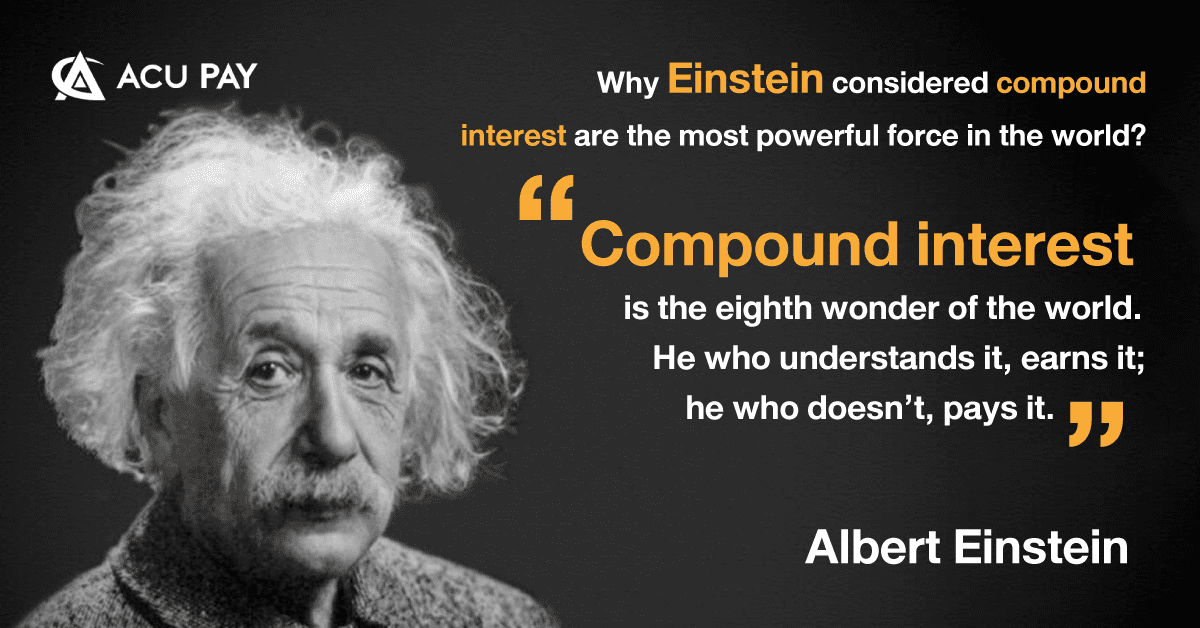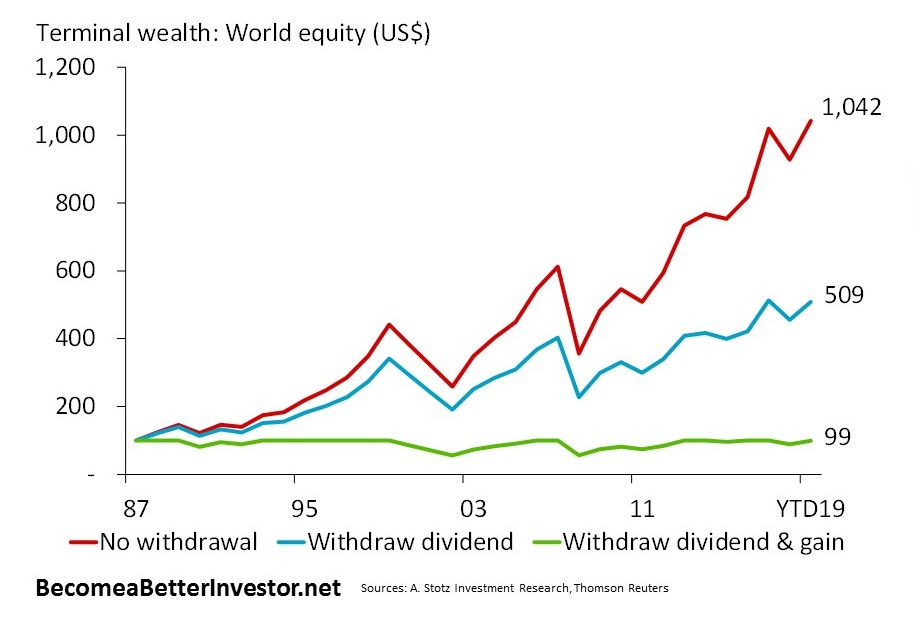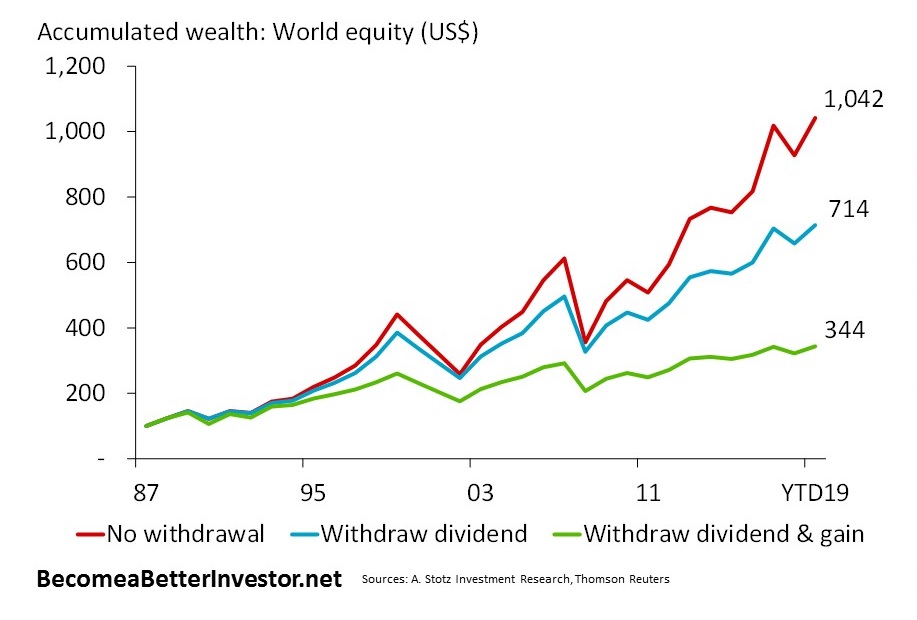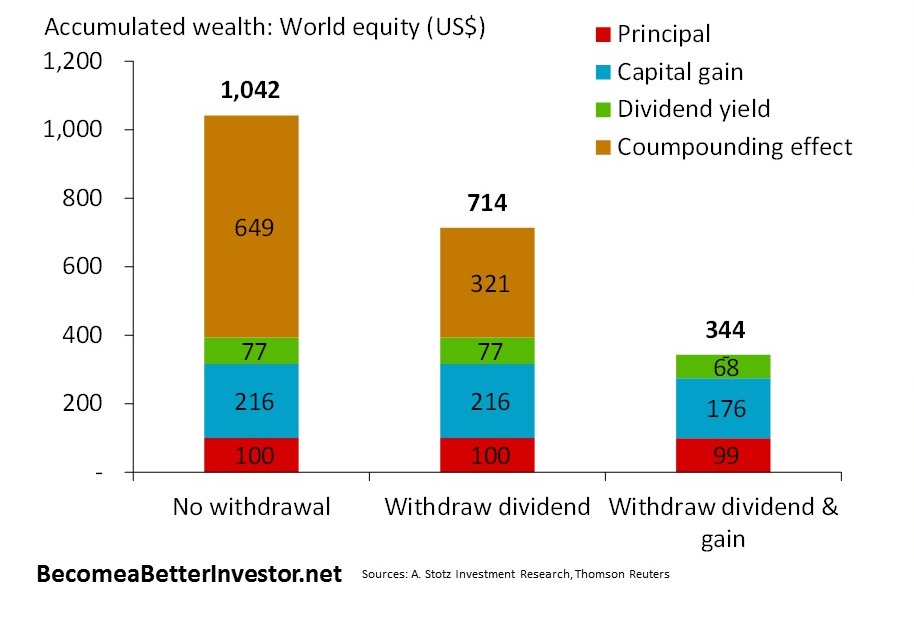

“Compound interest is the eighth wonder of the world. He who understands it, earns it; he who doesn’t, pays it.”
Compound interest is when we take returns such as interest, dividends, and reinvest them in order to achieve a multiplier return in the long run. Let’s take a look for an example.
Unhappily, compound interest is quite boring for the first 20 or so years. But compounding is your best friend in investing. Let’s make this more real and look at what compounding actually can do for you and some rules to follow to get the most out of this eighth wonder of the world.
When investing in stocks, your returns come from capital gains, price appreciation of the stock, and dividends, when the company distributes a portion of its earnings to shareholders. By staying invested and reinvest you can also make money from compounding.
This approach does not mean when and how we should trade, but we explain in terms of how compound interest can make us wealthy? Let’s assume you were to invest $100 in world equity at the end of 1987 and let’s compare three different scenarios
withdraw dividends only each year
Let’s first look at the terminal wealth of these three options as follows:

If you stayed invested and reinvested your dividends (Red line) , your terminal wealth would be $1,042 today. If you didn’t reinvest dividends (Blue line), you’d have $509 today. As you can see if you withdraw all your capital gains and dividends each year (Green line), your terminal wealth would end up being about the same as you put in. The main factor that makes this difference is what we compound interest.
Though, in the cases where you take out money from your portfolio in the form of dividends or dividends and capital gains you have made more money than the terminal wealth. We’ve therefore taken a look at something we call accumulated wealth. The measure considers all money that you’ve made throughout the time since you began investing at the end of 1987.

To benefit the most from the eighth wonder of the world—compounding—you must invest for the long term, and you should reinvest dividends. There’s one more part to it, you shouldn’t just put in $100, but you want to contribute more money to your portfolio regularly. You don’t want to end up not having enough money when you get old and expose yourself to shortfall risk.
For most people, it makes sense to contribute to your portfolio every month when you receive your salary. You should also consider increasing your contributions as your salary increases throughout your career.

To get the most out of compounding, you should follow these 3 rules:
Invest for the long term
Reinvest dividends
Keep adding money, preferably every month
It’s not uncommon that people find reasons not to start investing or continuously contribute to their portfolio. One such reason might be that the market appears too expensive. That can be a legitimate worry at points but timing the market becomes less relevant as the length of your investment horizon increases.
The key point of this whole post is to highlight that through the magic of compounding there is a lot of additional “free” money to collect. If you’re not invested, you can’t benefit from compounding.
The heart of compound interest is taken time and patience. Building wealth takes a long time, but the result will be worth the wait.
Reference : becomeabetterinvestor